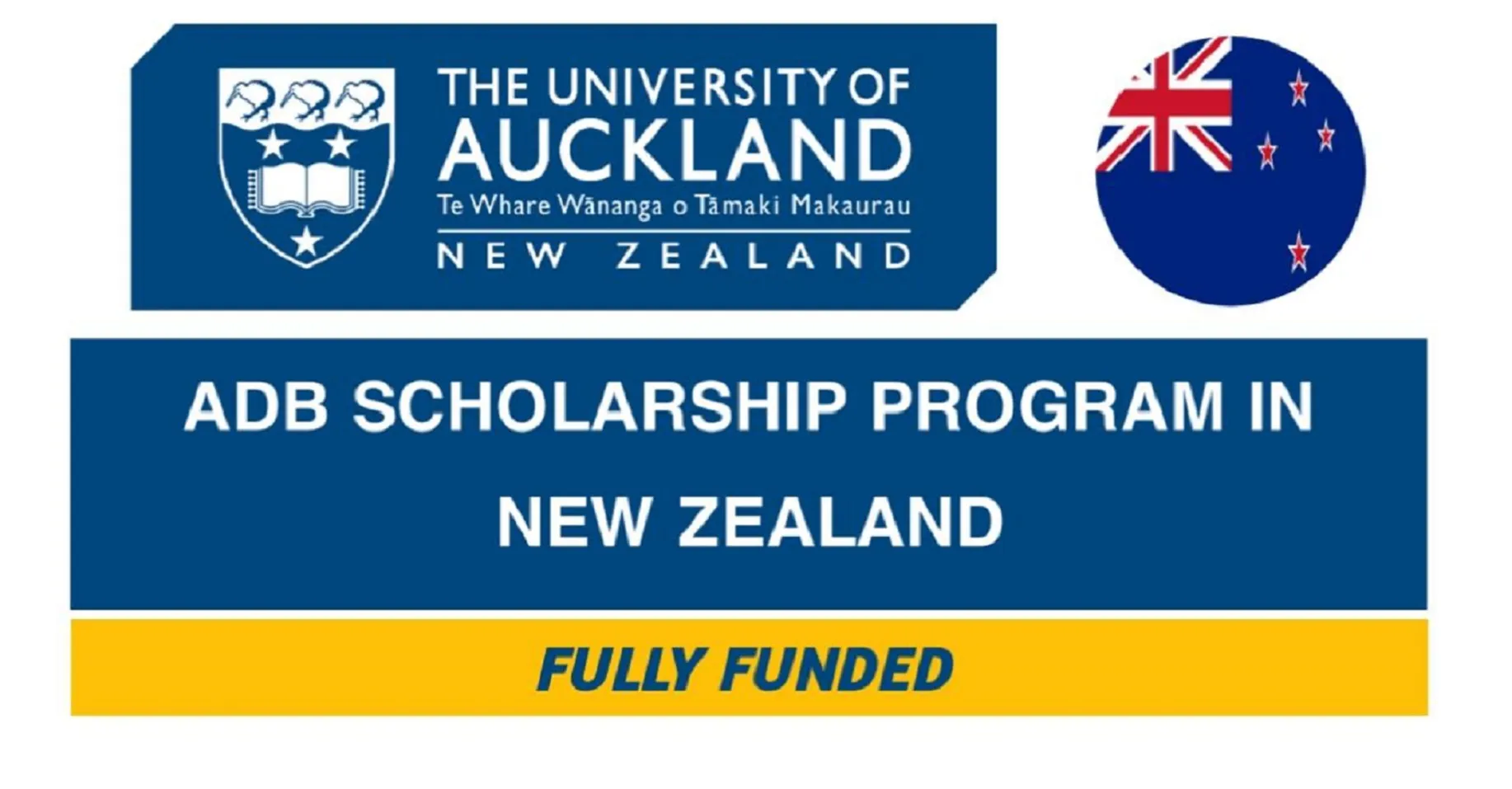Strategic Undergraduate Scholarship from University of Auckland New Zealand – Nigerian Applicants Gain Access to World-Class Study & Career Pathways
Introduction
For many young Nigerians aspiring to study abroad, the chance to attend a top university at affordable cost can feel like a dream. The good news? That dream is very real at the University of Auckland (UoA) in New Zealand. With its broad range of international-student scholarships, this institution is opening doors for global talent — including Nigerian applicants — to access a world-class education, grow professionally, and build meaningful careers.
In this blog post, we’ll explore the scholarship opportunities at the University of Auckland, why this is a strategic move for Nigerian students, compare key scholarship features, provide detailed insights into how to apply and what to expect, and finally highlight what this could mean for your future career.
By the end, you should have a clear idea of:
- Why UoA is an excellent target for Nigerian undergraduates
- What scholarships are available and how they work
- How you (as a Nigerian applicant) can position yourself to succeed
- How this experience can translate into long-term career benefits
Let’s get started.
Why Choose the University of Auckland?
If you’re considering an undergraduate degree abroad, choosing the right university matters. Here’s why UoA stands out — especially for Nigerian applicants:
Global reputation & quality of education
The University of Auckland is New Zealand’s largest and highest-ranked university, known for research, teaching excellence and a diverse international student body. Its scholarship page states that over 190 scholarships are available for international students in a given year — demonstrating the university’s commitment to global access. (international.auckland.ac.nz)
Rich campus experience, international networks
Studying at UoA isn’t just about classes: you’ll gain exposure to a global community, access to modern facilities, opportunities for research, and links to industry. The scholarship page emphasises that many awards “help you focus on your studies and your future” by reducing financial burden and offering mentorship opportunities. (international.auckland.ac.nz)
Strategic value for Nigerian applicants
For Nigerian students, this scholarship-plus-study abroad pathway offers several advantages:
- Currency exchange benefits: with the Nigerian naira often under pressure, being able to study abroad in a currency-stable environment offers greater financial predictability.
- International credential: a degree from a globally recognised university boosts your resume at home and abroad.
- Global mobility & career pathways: New Zealand’s economy, industry links and international orientation mean you could establish networks that open doors well beyond Nigeria.
Key Scholarship Opportunities for International Undergraduates
Let’s drill down into what’s on offer. The university provides multiple scholarships targeting international students at the undergraduate (and postgraduate) level. While none are explicitly labelled for Nigerian applicants, many are open to “new international students” from all countries — which means Nigerian students are eligible.
Here are some of the major ones:
| Scholarship Name | Value | Eligibility Highlights | Notes for Nigerian Applicants |
|---|---|---|---|
| International Student Excellence Scholarship | Up to NZ $10,000 towards compulsory tuition fees. (auckland.ac.nz) | Open to new international students (undergraduate or taught postgraduate) with overseas secondary or post-secondary qualifications. GPE (Grade Point Equivalent) of at least 6.00 required. (auckland.ac.nz) | Nigerian secondary school results must be converted or assessed to satisfy UoA’s entry qualification – you’ll want strong grades. |
| India High Achievers Scholarship | Up to NZ $20,000. (auckland.ac.nz) | For new international students from India enrolling full-time in undergraduate / PGDip / masters. | Although this is India-specific, the scale shows what UoA is willing to offer — look for similar high-value awards for other countries. |
| School Leaver Scholarship (for international students) | Up to NZ $20,000. (auckland.ac.nz) | For new full-fee-paying international students who attended a NZ secondary school. | Less relevant for Nigerian students unless you’ve already studied in NZ. |
| Other Faculty/Subject-specific Awards | Various amounts (e.g., NZ $5,000-10,000). (auckland.ac.nz) | Specific to faculty, subject, or special circumstances (disability, equity, etc.). | Worth checking if you have a standout subject or other unique criteria. |
From this table, you can see that the International Student Excellence Scholarship is the most accessible for Nigerian applicants (since it is broad and open to all international students).
Important note: While the scholarship is open to international students, you will still need to meet course admission requirements (e.g., English language proficiency, academic prerequisites) as well as scholarship eligibility criteria.
Why It’s Strategic for Nigerian Applicants
Why is pursuing an undergraduate scholarship at UoA a strategic move for you as a Nigerian student? Let’s break it down into several benefits.
1. Financial leverage
While the UoA scholarship may only cover part of your tuition (e.g., up to NZ $10,000), it significantly offsets cost and reduces the burden on you and your family. A smaller out-of‐pocket cost can mean less reliance on loans or other financial stress from home.
2. Academic brand & future employability
A degree from the University of Auckland sends a strong signal: you chose an international, highly-regarded institution, succeeded in getting selected, and competed in a global applicant pool. Nigerian employers, international recruiters and postgraduate programmes recognise the value of such credentials.
3. Skill development & global exposure
Studying in New Zealand exposes you to diverse classmates, teaching styles, research culture, and international perspectives. This broadens your mindset, gives you confidence in international settings, and strengthens your “global readiness” — something increasingly important in today’s job market.
4. Possibility of global mobility
If your goal is to work abroad, engage in global projects, or study further abroad (master’s/PhD), starting with this scholarship puts you on solid footing. Many international students build on their undergraduate experience, gain internships, and launch careers in multiple countries.
5. Standing out among peers in Nigeria
The fact that you secured a scholarship abroad gives you a distinctive edge in Nigeria’s competitive job market — you’ll have a story of initiative, determination, and global vision that many local candidates don’t.
How to Navigate the Application Process (Step-by-Step)
Let’s walk through a clear roadmap you can follow to apply for the scholarship and position yourself to succeed.
Step 1: Choose your programme at UoA
- Visit UoA’s international student scholarship pages to identify undergraduate programmes you’re interested in. (auckland.ac.nz)
- Check the academic/professional alignment: choose a field that you are passionate about and where you can demonstrate strengths (grades, activities, etc).
- Confirm English language requirements (e.g., IELTS/TOEFL) and other admission criteria.
Step 2: Understand eligibility and deadlines
- The International Student Excellence Scholarship requires: new international student status, full-time enrolment, and meeting GPE of at least 6.00 (or equivalent) if specified. (auckland.ac.nz)
- Note the deadlines: e.g., the application for studies beginning in February/July 2023 had deadlines in November and April. (Nairametrics)
- Always check the latest deadlines on the official UoA website.
Step 3: Prepare a strong application package
Your scholarship application typically includes:
- A motivation/cover letter: explain why you chose UoA, your academic background, your career goals, and how the scholarship will help you. UoA emphasises this. (auckland.ac.nz)
- Academic transcripts and certificates: ensure your Nigerian results are converted or presented in a format UoA accepts.
- Referee letter(s): someone who can speak to your character, achievements, and potential.
- English proficiency results (if applicable).
- Prior-achievement evidence: awards, leadership, volunteering, extra-curricular activities — anything that helps you stand out.
Step 4: Apply for admission + scholarship
- First, apply for admission to your chosen UoA undergraduate programme (you may need a conditional/unconditional offer).
- Then, apply for the scholarship via UoA’s scholarships portal before the deadline.
- Keep track of key dates and ensure you submit everything before the closing date.
Step 5: Plan financially beyond the scholarship
- The scholarship covers tuition fees credit (not always full cost of study). For example, some mention payment “towards compulsory tuition fees” in the first semester. (auckland.ac.nz)
- You should budget for living costs, travel, visa, insurance, and other non-tuition expenses.
- Consider part-time work (if permissible), scholarships/awards within UoA, or family support.
Step 6: Prepare for transition & success at university
- Once accepted, plan arrival logistics: student visa, health insurance, accommodation.
- Engage early with orientation, networking, academic support.
- Make the most of mentorship, extracurriculars, and international student services that UoA offers.
- Keep strong grades and involvement — this positions you well for future opportunities (e.g., internships, further scholarships).
What Nigerian Applicants Should Keep in Mind
Here are specific considerations for Nigerian students who want to take advantage of this opportunity.
Conversion of qualifications & GPE
- UoA uses a “Grade Point Equivalent (GPE)” system; one of the regulatory documents states a GPE of at least 6.00 is required for the International Student Excellence Scholarship. (auckland.ac.nz)
- You may need to contact UoA’s admissions or international office to ensure your Nigerian results are properly mapped or verified.
Demonstrating English proficiency
- Being from Nigeria, you may need to show proof of English language capability, depending on your secondary schooling and academic background.
- Ensure your test scores (IELTS/TOEFL) are recent and meet the university’s benchmark.
Financial planning & currency issues
- While the scholarship reduces tuition cost, living in Auckland (New Zealand) still carries cost: accommodation, utilities, living expenses.
- The Nigerian naira’s value relative to the New Zealand dollar (NZD) can affect family budgeting; doing this early helps avoid surprises.
- Consider possible part-time jobs — New Zealand allows international students to work part-time under certain conditions.
Cultural & academic transition
- Moving from Nigerian secondary education to a New Zealand university means adjusting to teaching styles, assessment formats, class participation norms.
- Engage proactively with support services on campus (international student orientation, academic writing centre, peer mentoring) to smooth the transition.
Capitalising after graduation
- Think of your undergraduate years not just as study, but as strategic stepping-stones: internships, research projects, global networking.
- Use the international credential to return to Nigeria with enhanced employability or to explore opportunities abroad.
- Keep your academic performance high — good undergraduate results matter for postgraduate opportunities or competitive jobs.
Comparing UoA with Other Study-Abroad Options
Let’s compare how the University of Auckland stacks up against typical international study-abroad scholarship opportunities for Nigerian students.
| Feature | University of Auckland | Typical Other Options (e.g., UK, US, Australia) |
|---|---|---|
| Scholarship value | Up to NZ $10,000 tuition credit for some international students; other awards up to NZ $20,000. (auckland.ac.nz) | Some other universities offer full or near-full scholarships, but often with extremely high competition and additional conditions. |
| Eligibility openness | Open to new international students from any country (including Nigeria) for targeted scholarships like the International Student Excellence. (scholarshipshub.org) | Many scholarships are country-specific, region-specific, or require long waiting lists and extra burdens. |
| Cost of living context | New Zealand has a relatively moderate cost of living compared with some parts of the UK or US; plus New Zealand lifestyle is student-friendly and safe. | UK/US/Australia may have higher tuition + living cost, potentially greater financial pressure for Nigerians. |
| Global mobility and networks | UoA offers strong international links and has students from many countries, which helps build global networks. | Larger universities in US/UK may have bigger brand names, but also higher competition and living cost. |
| Accessibility of application process | UoA clearly lists its scholarship criteria, deadlines and guidelines online. (auckland.ac.nz) | Processes in some other countries may be less transparent or more expensive (test fees, travel for interviews, etc.). |
From this comparison, UoA appears to offer a very competitive, well-structured, and accessible option for Nigerian undergraduates seeking study abroad with scholarship support.
Key Insights – Maximising Your Chance of Success
Now that you understand the opportunity, here are key insights to maximise your success.
Insight 1: Start early & research thoroughly
- Don’t wait until the last minute. Admission + scholarship deadlines are in advance of start of semester. For example, some deadlines for the International Student Excellence Scholarship were in November (for next year’s start) or April. (Nairametrics)
- Gather all required documents (transcripts, test scores, letters, motivation essay) in advance.
- Reach out to UoA’s International Office with any questions about Nigerian qualification equivalence or specific requirements.
Insight 2: Stand out academically and holistically
- High academic grades matter. UoA’s regulations for the scholarship emphasise academic merit, the quality of applicant’s letter and referee endorsement. (auckland.ac.nz)
- But there’s more: you’ll improve your chance if you bring in extra-curriculars, leadership, community involvement, clarity about your future goals and how this study fits your career vision.
- As a Nigerian applicant, you may also emphasise your unique perspective, cross-cultural skills, and how you aim to apply your education back home or globally.
Insight 3: Clear articulation of your future path
- In your motivation letter, clearly answer: Why UoA? Why this programme? What do you plan to do after graduation? How does the scholarship help you achieve that?
- Mention how your Nigerian background equips you with particular insights, or how you aim to contribute to your home country/continent or globally.
- Show that you are not just looking for a “free ride” but you are intentional about the education and career outcomes.
Insight 4: Financial backup plan & realistic expectations
- The scholarship reduces cost, but doesn’t guarantee full funding of all expenses. Be realistic about living costs, visa fees, insurance, travel.
- Look at living cost estimates for Auckland and plan budget: accommodation, utilities, food, transport.
- Consider part-time work (if eligible under student visa rules), scholarships within UoA, or support back home.
Insight 5: Make the most of the study-abroad experience
- Once you start your programme: engage early. Attend orientation, join student clubs, seek mentors, connect with international student community.
- Seek internships, industry links, research opportunities — these will boost your resume.
- Keep strong grades: your undergraduate performance will influence future study or job opportunities.
What This Could Mean for Your Career Pathway
An undergraduate scholarship at UoA isn’t just about studying abroad — it can be transformative for your career. Let’s explore how.
Building a global foundation
You’ll acquire academic knowledge and skills in your chosen field with a global lens. Additionally, being in an international environment fosters cross-cultural communication, adaptability and network-building — all highly valued by employers globally.
Differentiation in the Nigerian job market
When you return (or apply from abroad) for jobs in Nigeria or elsewhere, you bring:
- An international degree credential
- Evidence of scholarship success (which signals quality and competitiveness)
- Exposure to different thinking styles and systems, which many employers find appealing.
Path to postgraduate studies or research
If you aim for further study (masters or PhD), your undergraduate experience at UoA strengthens your profile. Scholars often get access to research opportunities, faculty connections, which help for scholarship applications for postgraduate studies.
International mobility & global opportunities
Many graduates from international universities pursue global careers: multinational companies, international NGOs, startups, or academic pathways. Starting at UoA means you’ve already begun building an international profile.
Giving back and making impact
As a Nigerian graduate with international exposure, you are uniquely positioned to bring knowledge, global best practices and networks back to Nigeria (or Africa). Whether through innovation, entrepreneurship, public service or academia — your experience can fuel change.
Challenges & How to Mitigate Them
No pathway is without its hurdles. Let’s acknowledge some of the common challenges Nigerian students might face with this scholarship route — and how to mitigate them.
Challenge 1: Currency / exchange rate volatility
- The New Zealand dollar (NZD) may appreciate/depreciate relative to the Nigerian naira, impacting cost of living.
Mitigation: Build a buffer in your budget; consider converting funds early; look for currency hedging advice where possible.
Challenge 2: Meeting admission/exam requirements
- UoA may require English language proficiency, converted grades, and specific academic prerequisites.
Mitigation: Early preparation is key — sit required tests, translate/verify certificates, contact admissions for any clarifications.
Challenge 3: Homesickness & adaptation
- Moving from Nigeria to New Zealand involves cultural, climate and social adaptation.
Mitigation: Engage in orientation, connect with Nigerian or international student groups, maintain good support networks, seek university counselling if needed.
Challenge 4: Financial shortfall despite scholarship
- If the scholarship covers only part of the cost, you may still face funding gaps.
Mitigation: Apply for additional scholarships or awards, explore part-time work (if allowed by visa), budget carefully for living.
Challenge 5: Post-study work visa and job market navigation
- After graduation, you may want to work in New Zealand or elsewhere; visa rules and job markets differ.
Mitigation: Understand student visa/work visa rules in NZ early; build internship/work experience during studies; create a plan for your post-study period (return to Nigeria, stay in NZ, or move elsewhere).
Conclusion
The opportunity to study at the University of Auckland through an undergraduate scholarship is strategic for Nigerian applicants. It offers a world-class education, financial leverage, global exposure and strong career potential — all within reach if you prepare well and apply smartly.
Here are the key takeaways:
- The University of Auckland provides accessible scholarships for international undergraduate students — including, in principle, Nigerians.
- The most relevant award is the International Student Excellence Scholarship (up to NZ $10,000), along with others.
- For Nigerian applicants, the benefits include increased employability, global networks, and enhanced academic standing.
- Success depends on early preparation, strong academics, engaging motivation, realistic financial planning and proactive utilisation of the study-abroad experience.
- While there are challenges (costs, adaptation, visa/work issues), they can be realistically managed with planning and support.
If you’re a Nigerian student aiming high, this is the kind of scholarship route that can transform your educational journey and open doors you may have only dreamed of. I encourage you to research the specific programme, review eligibility and deadlines, and begin your application process now.




